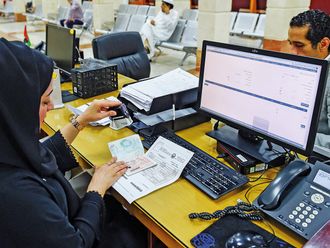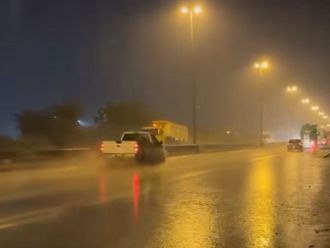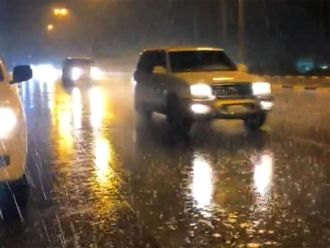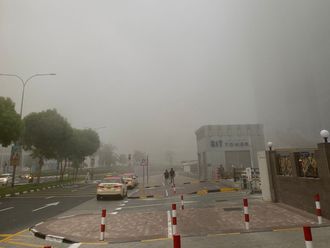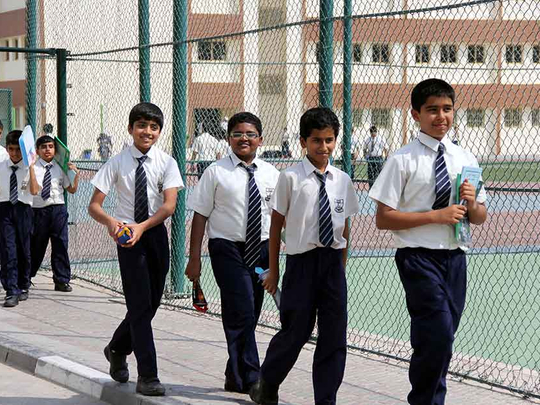
With the Knowledge and Human Development Authority (KHDA) permitting private schools to raise fees between 3.21 and 6.42 per cent for the new academic year, meeting school costs just got tougher for Dubai parents.
The base rate to increase fees is set at 3.21 on the 2016 Education Cost Index (ECI), which has risen by 0.29 per cent from last year’s 2.92 per cent. Dubai Statistics Centre takes into account the consumer price index and school operating costs — including teacher salaries, rent, maintenance and utilities — to calculate the ECI. Schools are capped to increase fees by a certain percentage based on their ranking in the Dubai School Inspection Bureau’s (DSIB) annual inspection report.
Rank-based inflation
In Dubai, 16 schools ranked as Outstanding in the DSIB inspection report are qualified to increase fees up to double that of the ECI (up to 6.42 per cent, as per the KHDA’s fee framework) while 13 schools rated as Very Good by DSIB are eligible to raise fees up to 1.75 times of the ECI (5.61 percent). Fifty-seven schools ranked as Good can raise fees up to 1.5 times of the ECI (4.81 per cent); 56 rated as Acceptable and seven rated Weak are allowed a rise equivalent to the ECI base rate (3.21 per cent).
While every parent wants to provide their children the best possible education, annual fee hikes add extra pressure to monthly budgets.
“The school fee is an expense that is compulsive in nature,” says Pakistani national Raza Ur Rahman, 39, whose son is to be admitted to year one at Gems Wellington Academy — Al Khail. The fee there has risen by Dh3,130 (4.8 per cent). DSIB provides the school a Very Good ranking, permitting the institution to raise fees by as much as 5.61 per cent.
A fair cost?
“The increase has come without any real rise in the quality of service,” says Rahman, who works as a Financial Controller for a global health care company. “It has also come too late when we have already paid the registration fee for next year, which I believe is a kind of violation of the original agreement, limiting the parent’s decision to retain their ward in the same school.
“Schools in general and some in particular are overpriced. However, there is a supply issue, which allows these schools to keep fees high,” he says.
Filipino parent Benedict Carpio, 50, has a daughter studying in tenth grade and son in eighth grade at United International Private School. The institution is rated Good, making it eligible to increase fees by up to 4.81 per cent.
“The annual fee increase dictated by KHDA is naturally becoming more challenging for us,” says Carpio, a cabin crew coordinator with a leading airline in Dubai. “My family relies on my monthly paycheck as my wife works only on a part-time basis. Therefore, any fee increase is challenging.”
For Indian parent Manish Chopra, 38, a business development professional, the fee rise is posing a hurdle of a different kind.
“As parents, we want to save enough for our children’s higher education, so the increase in primary schooling fees makes that more challenging for us, putting additional pressure on our monthly outgoings.” Chopra’s daughter is in KG1 at Gems Modern Academy, which received an Outstanding ranking.
“The fee has increased by 5 per cent. With this increase, we have to shuffle between our priorities to fulfill the additional outgoing. On the plus side, the school education offered here is outstanding.”
Indian mum Shikha Garg, 39, has a child in grade six and another in grade four at Gems Winchester Oud Metha. The school increased fees by 3 per cent, she says. “The tuition fees are reasonable compared to other schools but the rise in fees is not being matched by a similar rise in quality of education.
“I see a lack of discipline at school and believe they should consider investing in qualified and experienced staff on board. We also wanted to move our kids to a CBSE curriculum, so, we opted to change their school from this term,” adds Garg.
Tough choices
Ex-banker Aisha Zafar, 36, is a mum of three. Her daughter studies at Ibn Seena English High School, while her son had to stop studying due to financial constraints. As her younger son, five, now readies for school, Zafar has decided to head back to her hometown, Lahore.
“We can’t afford the fees for all three, as UAE schools are increasing fees every year. Both schools are looking at a 5 per cent increase,” she says. “We are a middle class family where both parents work. We want to give the best education to our kids but it’s a difficult decision [on] whether it should be given here or back home.
“Educating kids in the UAE is incredibly expensive. I have to go back home for my children’s future. My husband will stay [here].”






